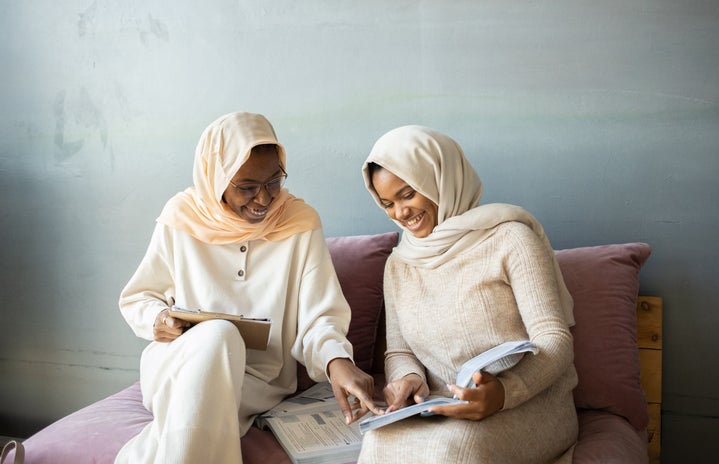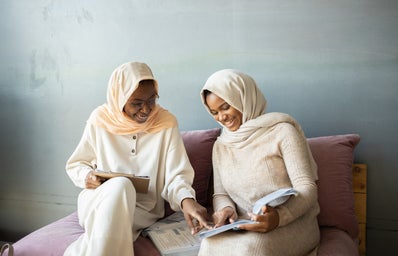According to Vogue France–one of the biggest fashion magazines in the world—head scarfs are in right now, but is the line drawn when it comes to Muslim women?
Last month, Vogue France posted on their Instagram page a photo of model and Uncut Gems actress Julia Fox adorning an all-black ensemble: leather trench coat, gloves, handbag, sunglasses, and a headscarf. The publication captioned the post “yes to the headscarf” but has since deleted that line after the intense backlash due to its astronomically tone-deaf nature—although there has not been any comment by Vogue France nor Fox addressing the backlash.
The post garnered a lot of attention and was met with heavy criticism. French-Moroccan model and activist Hanan Houchmi told CNN, “Yes to the headscarf—those few words were so simple. Yet we’ve been begging and waiting and fantasizing about the day we will hear then, for us as hijabi women.”
Vogue France’s post is a major insult to Muslim women—not only in France but around the world. Islamophobia runs rampant in France’s sociopolitical climate and “radical Islam” is a major point of contention in the upcoming presidential election in April. Just in January, French lawmakers voted 160 to 143 in favor of banning the hijab and other “conspicuous religious symbols” in sports competitions. Last May, President Emmanuel Macron’s ruling party withdrew its support for Sara Zemmahi, a lab technician running for local council, after she wore her hijab in a campaign poster. The French National Assembly passed an “anti-separatist” bill that was met with controversy and regarded as a direct attack towards French Muslims back in July.
Alia Al-Saji, an associate professor of philosophy at McGill University, told TIME, “The hijab is a way of clearly showing that you are Muslim, which is colonially constructed as being opposed colonialism, but it’s also a site of potential resistance.” From the so-called “Burqa Ban” in 2011 to the most recent ban of hijabs in competitive sports, France’s fixation on the hijab and other religious garments is egregious and has made the nation hostile for its Muslim community—the largest of all European nations.
For Vogue France to post and praise a white woman for wearing something that Muslim women have been constantly policed and scrutinized over—and reduce the headscarf to a fashion trend—is astronomically tone-deaf, yet is just a small margin of the rampant racism and xenophobia in the fashion industry.


